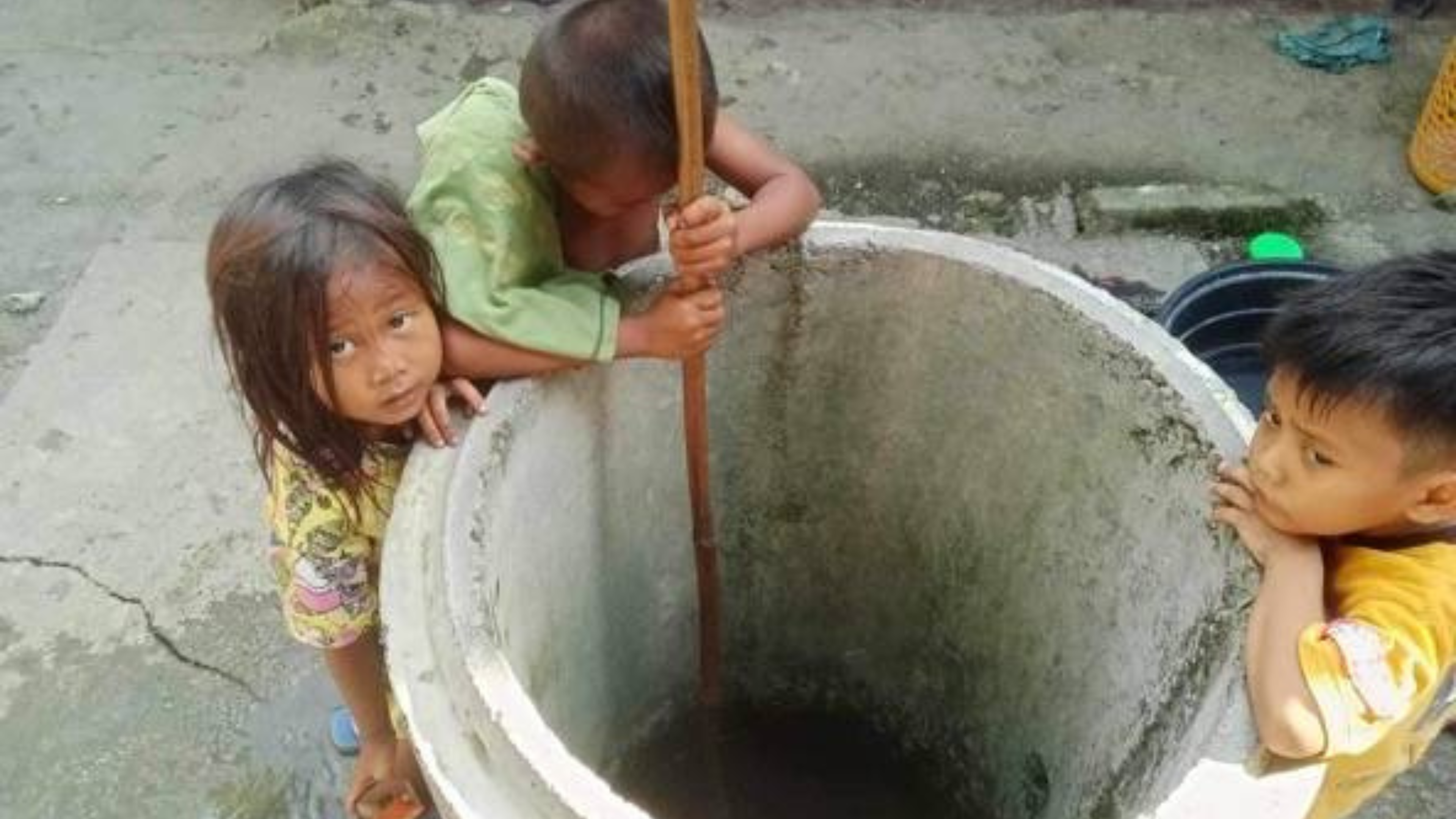
NO WATER HERE Children, in this March 25 photo, are playing in one of the dry wells in Barangay Tumbras, Midsayap, Cotabato province. —EARLY RESPONSE NETWORK PHOTO
COTABATO CITY—The Council for Climate and Conflict Action Asia (CCAA) has called on municipal governments in Central Mindanao and the Bangsamoro region to declare a state of calamity in their respective areas as water wells are drying up because of the El Niño phenomenon, making it harder for farmers to plant crops.
Maureen Lacuesta, senior program manager of the CCAA, said on Sunday that the drying of wells exacerbated the difficulties of women, who had to travel to another village to get water for household needs.
Lacuesta said the distance that women had to travel brought about new risks for them, citing the case of women in Midsayap town’s Barangay Tugal who had to find water in an adjoining village of Tumbras after their own drinking well dried up. Both barangays used to be part of Midsayap in Cotabato province but had opted to join the Bangsamoro Autonomous Region in Muslim Mindanao (BARMM) and are now part of the region’s Special Geographic Area (SGA).
Makon Gumaga, a member of the Mindanao-based Early Response Network (ERN), the CCAA’s partner group, said the dire effects of the dry spell were already evident in Cotabato’s towns of Pikit, Carmen and Kabacan.
Sweeping effect
“Unlike floods, which seemed to affect only certain areas in a locality, the effects of the drought [are] wide and sweeping,” said Gumaga, with trees now wilting in these Cotabato towns.
Wells have also started to dry up in Lanao del Sur province and along the Iranun corridor that composed the towns of Barira, Buldon and Matanog in Maguindanao del Norte province, Lacuesta said.
The CCAA, a Philippine-based group that monitors climate and conflict risks and responds to critical events in the Bangsamoro to prevent their escalation, said that because of the dry spell, many farmers in villages in Central Mindanao, Northern Mindanao and the Bangsamoro “are now unable to grow essential crops and vegetables and are struggling to provide food for their families.”
READ: 8 provinces now experiencing drought due to El Niño — OCD
In a statement issued during the World Water Day celebration on Friday, the CCAA also called on local governments to provide emergency provisions to avert hunger among fishing and farming communities affected by the drought, invest in water tankers for these affected villagers, and build new or rehabilitate existing water wells for them.
The CCAA noted that the drought had bolstered cohesion and camaraderie among families but it also raised the possibility that tension could arise once water supplies run out. “How long will this solidarity hold out?” the CCAA asked. INQ